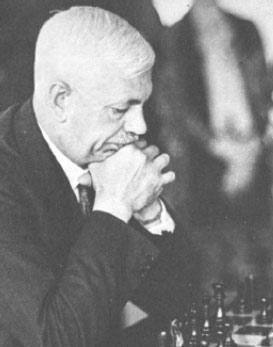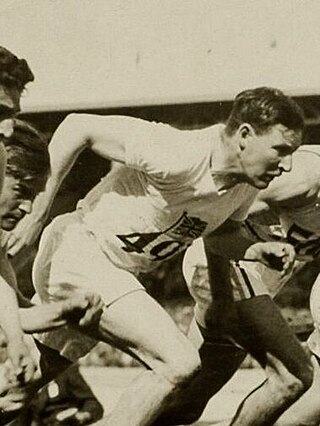| Personal information | |||||||||||||||
|---|---|---|---|---|---|---|---|---|---|---|---|---|---|---|---|
| Nationality | | ||||||||||||||
| Born | 2 November 1906 Macclesfield | ||||||||||||||
| Died | 1980 Southampton | ||||||||||||||
| Sport | |||||||||||||||
| Sport | Rowing | ||||||||||||||
| Event | Eights | ||||||||||||||
Medal record
| |||||||||||||||
Roger Close-Brooks (1906-1980) was an English rower.
| Personal information | |||||||||||||||
|---|---|---|---|---|---|---|---|---|---|---|---|---|---|---|---|
| Nationality | | ||||||||||||||
| Born | 2 November 1906 Macclesfield | ||||||||||||||
| Died | 1980 Southampton | ||||||||||||||
| Sport | |||||||||||||||
| Sport | Rowing | ||||||||||||||
| Event | Eights | ||||||||||||||
Medal record
| |||||||||||||||
Roger Close-Brooks (1906-1980) was an English rower.
Harrow School and Trinity College Cambridge [ citation needed ]
He competed in the eights at the 1930 British Empire Games for England and won a gold medal. [1]
He was an stockbrokers clerk at the time of the 1930 Games. [2]

Sir George Alan Thomas, 7th Baronet was a British badminton, tennis and chess player. He was twice British chess champion and a 21-time All-England badminton champion. He also reached the quarterfinals of the singles and the semifinals of the men's tennis doubles at Wimbledon in 1911. Badminton's world men's team championships cup, equivalent to tennis' Davis Cup, is named Thomas Cup after him. Thomas lived most of his life in London and Godalming. He never married, so the hereditary Thomas baronetcy ended on his death.

William Henry Walker was a prominent English footballer of the 1920s and 1930s. He is considered by many to be one of the greatest footballers to ever play for Aston Villa and England. As a manager he won the FA Cup with each of Sheffield Wednesday and Nottingham Forest, some 24 years apart, a record which still stands.

Alexander Wilson James was a Scottish international footballer. He is mostly noted as a playmaking lynchpin at Arsenal with whom he won six trophies from 1930 to the 1936 season. James featured as a deep-lying creative midfielder who provided a link between defence and attack. He was famed for his high level of footballing intelligence, outstanding ball control and supreme passing.

Roy McCrohan was an English professional footballer who played as a wing half.
John George Peart was an English footballer who played centre forward for 13 different teams in a career which spanned World War I. After he retired, he became a football manager until he died in 1948.
Donald Charles Hume was a male badminton player from England.

Robert Edwin Firth was an English footballer who played for Birmingham, Wellington Town, Nottingham Forest, Port Vale, and Southend United. He scored 22 goals from 242 appearances in the Football League. He later coached Spanish La Liga teams Racing de Santander and Real Madrid, leading Santander to a second-place finish in 1930–31 and Madrid to two Campeonato Regional Centro titles and a first-place finish in La Liga in 1932–33 and a second-place finish in 1933–34.

Robert Dibble was an English rugby union international who represented England from 1906 to 1912. He also captained the side in 1909 and 1912.

Harry William Payne was a British long-distance runner who competed in the marathon at the 1928 Summer Olympics in Amsterdam and was a two-time national champion. He was born in Bedfordshire.
Robert George Colquhoun (1882-1970), was an English bowls player who competed in the 1930 British Empire Games.

Wilfrid George Tatham was a British hurdler, who competed at the 1924 Summer Olympics.

England competed at the 1930 British Empire Games in Hamilton, Ontario, Canada, from 16 August to 23 August 1930.
Thomas Curtis Hills (1884-1963), was an English bowls player who competed in three British Empire Games.
George William Arthur Wright (1893–1949) was an English bowls player who competed in the 1930 British Empire Games and 1938 British Empire Games.
Ernest Frederick Gudgeon (1880-1965), was an English bowls player who competed in two British Empire Games.
James Edney (1870-1951), was an English bowls player who competed in the 1930 British Empire Games.
Albert Percy Hough (1877–1960), was an English bowls player who competed in the 1930 British Empire Games.
James Frith (1860-1946) was an English bowls player who competed in the 1930 British Empire Games.
Stanley Bell was an English swimmer from Birkenhead, Cheshire. He won a silver medal at the 1930 British Empire Games in the 200 yard breast-stroke and was also noted in 1930 as holding the title for the Northern Championships. In September 1930, he beat the British record for the 200-yard breast stroke and beat that record a year later.
James William Trippett was an English swimmer.